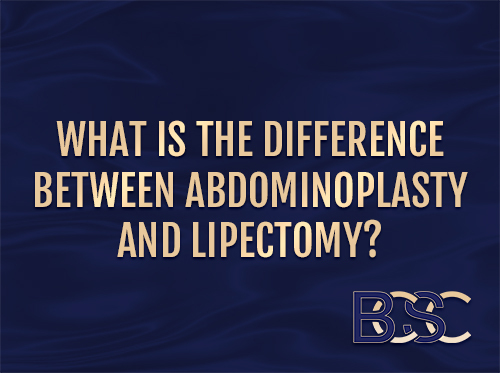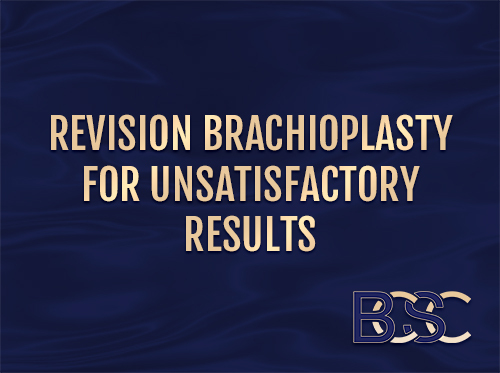Are You a Candidate for Brachioplasty?
Brachioplasty, also known as arm lift surgery, is a procedure that removes excess skin and fat from the upper arms. Many patients consider this operation after significant weight loss, but it may also be appropriate for individuals with loose skin and stubborn fat due to ageing or hereditary factors. While brachioplasty can improve the appearance of the arms, it is not suitable for everyone.

Who is a Typical Candidate for a Brachioplasty Procedure?
The upper arms can change in shape and appearance for several reasons. Some of the most common include:
- Ageing: Skin gradually loses elasticity and firmness over time, leading to sagging in the arms
- Post-bariatric surgery: Patients who have lost a large amount of weight, whether through surgery or diet, often experience loose skin in the upper arm area
- Genetic or hereditary reasons: Some people naturally store more fat in the upper arms, even when they are otherwise at a healthy weight
If you are considering brachioplasty, your first step is to see your general practitioner (GP). They can perform an initial assessment and provide a referral to a surgeon who specialises in excess skin removal. With this referral, you may then arrange a consultation with Dr Bernard Beldholm, FRACS, who has more than 15 years of experience performing brachioplasty (arm lift surgery) for post-pregnancy and post-weight loss patients.
Loose upper arm skin can also cause physical concerns such as rashes, chafing, or discomfort when exercising, in addition to appearance-related concerns. For this reason, brachioplasty may help address both functional and aesthetic issues.
Your Consultation for Brachioplasty (Arm Lift Surgery)
At your consultation, Dr Beldholm will:
- Ask about your specific concerns with excess arm skin and fat
- Examine your upper arms to determine the degree of skin laxity and fat deposits
- Review your health history, lifestyle, and any conditions that could affect safety
- Explain whether brachioplasty (arm lift surgery) is a suitable option for you
If you are found to be a good candidate, a tailored surgical plan will be created for your needs.
Criteria for a Good Candidate
Most patients who are suitable for brachioplasty (arm lift surgery) meet the following criteria:
- Are nicotine-free
- Are in good general health
- Are not pregnant or breastfeeding
- Are not significantly overweight
- Accept that scars will be present after surgery (usually placed on the inner aspect of the arm)
- Understand that surgery carries risks
- Have realistic expectations about what the surgery can and cannot achieve
- Have excess skin and fat in the upper arm region due to weight loss, maturity, or genetics
- Are committed to a healthy lifestyle, including diet and exercise, to help maintain results
Brachioplasty cannot increase muscle tone and it cannot prevent future weight gain. Patients should understand these limitations before committing to surgery.
Candidate Suitability for Brachioplasty (Arm Lift Surgery)
| Suitable Candidates | Not Suitable Candidates |
|---|---|
| Non-smokers and nicotine-free | Current smokers or recent nicotine use |
| In good general health | Uncontrolled medical conditions (e.g., diabetes, cardiovascular disease, immune deficiency) |
| At or near a stable, healthy weight | Significantly overweight or obese |
| Not pregnant or breastfeeding | Pregnant or currently nursing |
| Have excess skin and fat in the upper arms due to weight loss, ageing, or genetics | No significant skin excess or fat in the upper arms |
| Accept that a scar will be present on the inner aspect of the upper arm | Expect scarless results |
| Understand that brachioplasty will not change muscle tone or prevent future weight gain | Unrealistic expectations about surgery outcomes |
| Committed to a healthy lifestyle after surgery | Unable or unwilling to maintain a healthy weight and lifestyle |
Contraindications to Brachioplasty (Arm Lift Surgery)
Some individuals are not suitable candidates for brachioplasty (arm lift surgery). Common contraindications include:
Smoking or Nicotine Use
Tobacco use increases the risk of wound-healing problems and surgical complications. Patients must quit well before surgery to be eligible.
Pregnancy or Breastfeeding
General anaesthesia is not recommended during pregnancy, and medications given during or after surgery can pass into breast milk. Brachioplasty is therefore delayed until after pregnancy and nursing.
Medical Conditions
Patients with uncontrolled diabetes, cardiovascular disease, respiratory illness, blood-clotting disorders, or immune system problems may not be suitable for elective surgery.
Obesity
Patients who are significantly overweight are usually advised to reach and maintain a healthy weight before brachioplasty (arm lift surgery). This helps reduce surgical risks and improves long-term outcomes.
Booking Your Newcastle Brachioplasty (Arm Lift) Consultation
The only way to know if you are a candidate for brachioplasty (arm lift surgery) is through a consultation with a qualified surgeon. With a referral from your GP, you can book an appointment with Dr Bernard Beldholm, FRACS.
During your consultation, you will learn:
- Whether you are a suitable candidate for surgery
- Which type of brachioplasty procedure is most appropriate for you
- The potential risks and complications
- The costs involved, including fees for the surgeon, anaesthetist, and hospital
- How to prepare for surgery
- What to expect during the operation
- What recovery involves, including restrictions on activity and wound care
- How to maintain your results through a stable weight and healthy lifestyle
Disclaimer
Operation performed by Dr Bernard Beldholm. Adult content. Surgery carries risks, individual results vary. A second opinion is recommended. Please see the full disclaimer.


